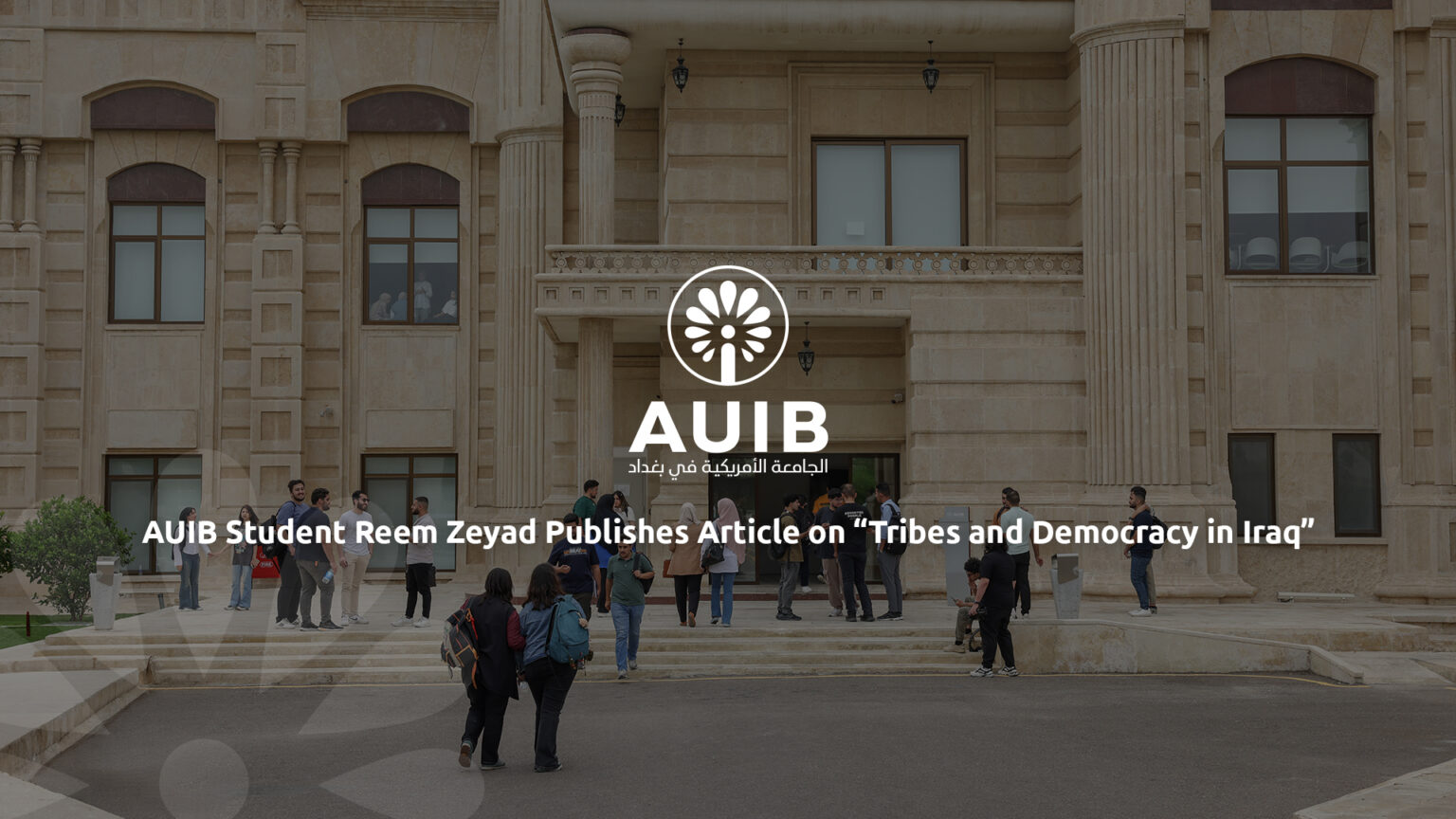The “Open Journal of Political Science,” issued by “Scientific Research Publishing,” featured a research article under the title, “Tribes and Democracy in Iraq: Are Iraqi Tribes a Steppingstone on the Path to Democracy?”, authored by Reem Zeyad Arif, student at the College of International Studies at the American University of Iraq-Baghdad (AUIB).
In addition to substantial literature review, the budding researcher conducted one-on-one interviews with experts on the subject, a number of tribesmen, and tribal leaders. She also conducted a survey that sought to gauge public opinion on a number of relevant key issues. Her work culminated in a paper that attempted to portray a dialectic of mutual influence between Iraqi tribes and the country’s political system, beginning with the establishment of the Iraqi monarchy in the early 1920s and up till the present day, through landmarks in the country’s history, most prominent of which being the U.S.-led invasion in 2003 and the ISIS wave of destruction that was unleashed in 2014.
In her research, Reem addresses conflicting theses on this key issue in Iraqi social and political life. On the one hand, her paper presents definitive statements such as: “Tribalism and its structure inherently contradict democratic governance… it is time for the government to limit the tribal role in Iraq to a ceremonial one.” On the other hand, the paper makes it amply clear that “tribes and their extended branches… make up the largest part of the state’s social landscape,” describing their existence as “integral to social cohesion,” and their role as that of “safety nets when the government is falling apart.” On this note, it is worth highlighting that in Reem’s survey, all respondents agreed with the statement that “tribal power increases when the state is weak,” as “tribes tend to take on protective and governance roles in the absence of strong state authority,” citing especially “the power vacuums of 2003 and 2014.”
However, despite playing a vital role when state authority or the state itself is undermined, “the existence of around 150 clan clusters around the country also means 2000 different praised tribal identities impacting national unity… The adoption of tribal identity over national identity has grave implications for strong state-building,” Reem quotes.
The article may be accessed via the following link:
“Tribes and Democracy in Iraq–Are Iraqi Tribes a Steppingstone on the Path to Democracy?”
